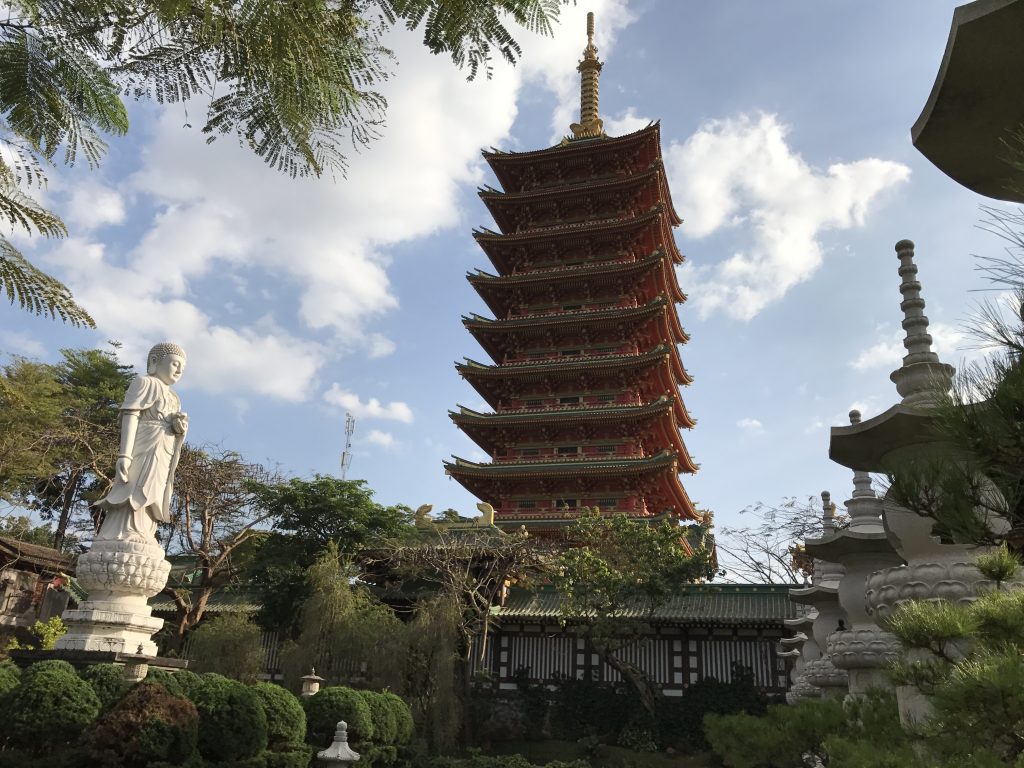 Scholars and practitioners from across ASEAN countries and the world will gather in Hanoi, Vietnam, October 23-24 to discuss the connections between religion, law and the economy (topics at end).*
Scholars and practitioners from across ASEAN countries and the world will gather in Hanoi, Vietnam, October 23-24 to discuss the connections between religion, law and the economy (topics at end).*
Venue: University of Social Sciences and Humanities (USSH)
Example from Indonesia
Yaya Winarno Junardy likes to tell the story about how he was just a boy from a small village in East Java, Indonesia, when he arrived in Jakarta in the 1960s. Pretty soon, he had four jobs — as a street cigarette seller, a high school biology teacher, a university student and a casino worker. He worked seven days a week.
The experience taught a lesson he still applies in his business and philanthropy today.
“I found myself in four different environments with four different kinds of customers in four different subjects,” he told a group of National University of Singapore students in 2012. “It taught me how, as an individual, to adapt to different situations. I learned that in my life and in my work I have to adapt.”
Adapt he did, taking on a fifth job — an operator for IBM — before he had the university degree the company required. He spent 25 years with IBM in a variety of executive positions in cities around the world. He has also held high posts with Bank Universal, ExcelCom and several other Asia-based telecommunications corporations. He is one of the most prominent businessmen in Jakarta.
Junardy learned how to adapt to people of different faiths and cultures from his grandfather, an ethnic Chinese who ran the family’s copra business among Muslim, Christian and Buddhist customers and contractors. He has said he believes this early exposure to people of different faiths and cultures taught him to relate to and respect others.
Today, as president commissioner of Rajawali Corp., he has more time to pursue what he calls his “second chapter” — improving conditions for the working and lower-income classes of Indonesia. His purpose now is “to give back to society by teaching young people, working with the underprivileged, and giving joy to others,” he told the publication HQAsia in 2012.
That ability to adapt has served Junardy, who is 69, well in his philanthropic endeavors. He is president of the Indonesia Global Compact Network — part of the United Nations Global Compact that encourages businesses to commit to universally accepted principles in human rights, labor, the environment and anti-corruption values.
Since 2011, Junardy has led a consortium of Indonesian businesses in hosting mass weddings for low-income Indonesian couples of multiple faiths who cannot afford the fees — 60,000 Indonesian Rupiahs or about five U.S. dollars — required for a legal marriage.
Without an officially recognized marriage, Indonesian couples cannot obtain identity cards, access health care or obtain birth certificates for their children. Junardy estimates 36 percent of Indonesian households lack these documents, stigmatizing their children — and affecting their education, health and, ultimately, their jobs.
For Junardy, providing poor children with legal status is a fulfillment of their basic human rights. “They are like nobodies in their own country,” he said earlier this year in a speech at the Gobal Child Forum. “They are left behind.”
In 2012, as he was preparing to spend more time on philanthropy, Junardy offered advice for would-be Indonesian business leaders “Take advantage of opportunities and learn from experiences,” he told HQAsia. “You learn best in times of adversity. Get exposed to cross-cultural experiences early in life and learn to relate to others who are different from you. Most importantly, always try to understand the context of the problem before jumping to solutions.”
* Topics include: Religion and Economy; Taxation Issues on Religious Economic Activities: the Cases of USA and Europe; Entrepreneurs, Enterprise-religious economy: Influence of religion to economic growth and social harmony: the case of Malaysia; Church’s contribution to society; Economics of religion today in South East Asia; Business individuals and corporations; Economic religion: influence of religion on economic development and social harmony; Religion and law in South East Asia; Taxation, abilities and roles of religious organizations of South East Asia in providing of social welfare and public services: the Case of Singapore; Legal Status Issue of Religious Organizations in Legislation of South East Asian Countries during the Economic Community Building; Financial and Taxation Regulations for Religion in ASEAN; Economics of religion in socio-political ASEAN context; Protestant Communities in South East Asia and sustainable social-economic development; Entrepreneurs, religious people, politicians, researchers: Social and religious Harmony of in development of ASEAN community; Religious Consumption Issues in South East Asia; Religious Supply and Demand Change; Religious organizations as Social Welfare Providers; Religion and Economy: South East Asia Issues and Prospects.
